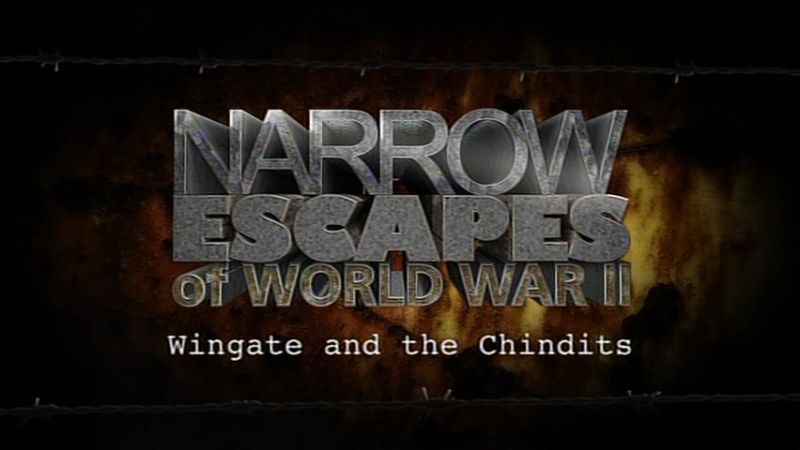Narrow Escapes of World War II episode 3: The Chindits were the army’s elite jungle troops who beat the Japanese in a daring mission. Hear their jaw-dropping story. To take on the undefeated “supermen” of the Japanese army advancing toward India, the British call on Orde Wingate, who forms a special “Chindits” unit for sabotage inside Japanese-controlled Burma. 1943, Orde Wingate was an extraordinary British General, forming the Chindits as the Japanese appeared to be planning to invade India. They marched deep into the jungles of Burma to destroy Japanese supply lines and disrupt their advance. Remarkable eyewitness interviews, of how the Chindits survived in the jungle and walked to freedom.
They were the bravest of the brave. Led by the bible-thumping, onion chewing maverick, Orde Wingate, the Chindits were the British army s elite jungle troops the first to take on the Japanese and beat them. This film contains jaw-dropping testimony from survivors, dramatic reconstruction and archive and it tells the story of the Chindits first near-suicidal mission behind Japanese lines. How often do get the chance to look into a man s eyes as he tells how he had to shoot a wounded comrade in the head, or hear a poem composed on the death of a mule?
Narrow Escapes of World War II episode 3
Orde Wingate was a British military officer who is best known for his role in the creation and leadership of the Chindits, a group of guerrilla soldiers who fought behind enemy lines in Burma during World War II. Wingate was a highly unorthodox leader, known for his unconventional tactics and disregard for traditional military hierarchy.
Wingate believed that the best way to defeat the Japanese in Burma was to use a force that was highly mobile and able to operate behind enemy lines. To that end, he created the Chindits, a unit made up of British, Indian, and Burmese soldiers who were trained in guerrilla warfare and able to operate for extended periods without access to supply lines.
The Chindits conducted several missions behind Japanese lines, including the first raid on a Japanese airfield in Burma. They were highly effective in disrupting Japanese supply lines and communications, and they were able to inflict significant damage on Japanese forces while sustaining relatively few casualties themselves.
However, the Chindits’ successes came at a great cost. The soldiers faced extreme weather conditions, disease, and constant danger from Japanese patrols. Many of the soldiers became malnourished and suffered from illnesses such as malaria and dysentery. The Chindits also faced criticism from some quarters, including other military leaders who felt that Wingate’s tactics were too risky and unorthodox.
Despite these challenges, Wingate and the Chindits continued to carry out their missions, believing that their efforts were crucial to the Allied war effort. Wingate was killed in a plane crash in 1944, but the Chindits continued to operate under other leaders until the end of the war.
Today, Wingate and the Chindits are remembered for their bravery and determination in the face of great adversity. They showed that unconventional tactics could be highly effective in war and paved the way for future special forces units. Their legacy lives on, inspiring generations of soldiers to push the boundaries of what is possible in military strategy and tactics.




